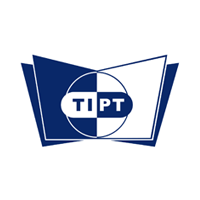
Generic drugs are marketed as offering the same benefits as their brand name equivalent, usually at a much cheaper price. Among the general public, however, there is often apprehension about these products, with many people believing that generic versions of drugs are inferior to the originals.
In fact, a recent study conducted by the University of Cincinnati using patients with Parkinson’s disease found that 28% reported more improvement when given what they were told was a brand name treatment compared to a supposed generic drug. In reality, both were placebos.
Graduates of pharmaceutical research and development technology programs may find themselves working at companies that create both brand name and generic drugs during their careers. Here’s what you need to know about the differences between them.
What is the Difference Between Brand Name and Generic Drugs?
When a pharmaceutical company brings a new drug to market, they will be given a patent to manufacture it exclusively for a certain period of time. This helps the organization to recoup the investment they have made in researching and developing the product.

Once the patent expires, however, other companies can begin to manufacture drugs using the same formula. These generic products must meet the same quality standards and good manufacturing practices (GMP) as the brand name drug, but do not require new clinical studies. Because manufacturers do not need to spend time and money on development, generic products are usually significantly cheaper than their brand name equivalents.
How Professionals with Pharmaceutical Research Training Develop Generic Drugs
In order to be approved for sale, generic drugs need to demonstrate that they are ‘bioequivalent’ to their brand name counterpart. This means that they use the same formula, and are absorbed into a patient’s body at approximately the same rate. While both products must use the same active ingredients, the non-medicinal ingredients – or excipients – are often different. This can sometimes result in them being a different colour, size or shape.
Although clinical trials are not necessary, generic drugs must still be approved by official bodies like Health Canada and the FDA, and will be examined for quality, purity and efficacy. During the advanced module of their pharmaceutical research and development program, many students at Toronto Institute of Pharmaceutical Technology have undertaken projects related to the design of experiments (DOE) for generic drug development. Learning how to carry out this process effectively can be very beneficial for your career.
Can Choosing a Generic Drug Make a Difference for Patients?
In general, there is no difference in quality or effectiveness between brand name and generic drugs. However, there can be a few issues which need to be taken into account. For instance, if the excipients used in a generic formulation are different from the original product, it may be possible that a patient may have an allergy or intolerance to one of the ingredients. This can include common food allergens like lactose and gluten.
Additionally, there are certain drugs in which the minor concentration variations allowed by regulators can cause problems for patients switching from brand name to generic drugs or vice versa. These are known as narrow therapeutic index (NTI) medications, and can include treatments for heart arrhythmia, epilepsy and thyroid problems. These issues are usually minor, and will often go away once the patient adjusts to the new product.
Career Opportunities in Canada for Brand Name and Generic Drug Development
All generic drugs sold in Canada are manufactured in the country, meaning there are many opportunities for pharmaceutical professionals in this area. Generic medications now account for 42% of all Canadian prescriptions, and are estimated to save the healthcare system $2.6 billion per year.

In addition, while many people believe that generic drugs are of lower quality than brand name products, the reality is that the manufacturing standards of both are the same. In fact, many generic medications are actually made by brand name companies. This means that professionals with pharmaceutical research training often find themselves working with both generic and brand name drugs within the same organization.
Interested in a career in drug development and manufacturing?
Contact TIPT to learn more about our pharmaceutical research and development courses.
